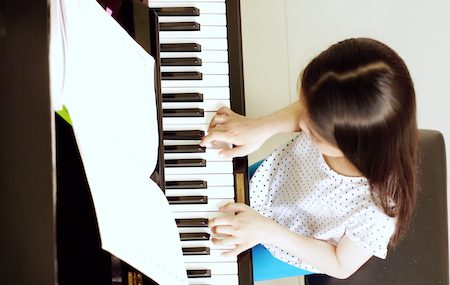When we sign up our kids to start a new activity, we do so with a lot of anticipation. We want them to be passionate about the things they take on. We want them to add value to their lives. We do it with the greatest of intentions.
When you invest in a piano and sign up your child for piano lessons, you have hopes they fall in love with music. It can be a lifelong hobby that improves linguistics, makes them better at critical thinking, and reduces stress in the process.
Yet even for kids that naturally take to the piano, there may be times when they simply won’t practice.
Your first step is discovering why. We find people don’t practice the piano for a variety of reasons …
- A child has too many activities and can’t fit them all in.
- A child who doesn’t understand how to practice correctly.
- A child who doesn’t enjoy the environment the piano is placed in. Maybe they feel isolated, and away from the family.
- A child who doesn’t have any goals in place, and lacks direction with their practice.
- A perfectionist who is afraid to make a mistake.
- A child who is nervous of a future event. Are they scared of an upcoming recital?
- A child who feels they aren’t improving. They may be asking: what’s the point?
Can you see any of these scenarios in your child’s behavior?
If a child refuses to practice, there’s a reason behind it. Instead of canceling the piano lessons and moving on, get to the heart of the issue. Help your child figure out the problem, and work to find ways to get to the solution.
If the child isn’t sure how to practice, maybe you can sit down with the instructor and refine the practicing process. What can you do to make the process more enjoyable? What steps can you take to bring joy back into the music process?
If your child is a perfectionist, you may be seeing them hold back in a variety of areas in their life. Are they stressed about grades? Or making a team at school? That can pass through to many different activities.
You can also review their approach. Are they bored with the materials? Maybe changing out the music can give them a new sense of direction. Do you set the timer? Maybe they’ve become clock-watchers. Talk to your instructor about setting new goals. Kids often do better practicing with a goal-based approach instead of timed. They can play a few scales for warm up, work on a piece of music they’re struggling with, and close out the session by playing a favorite piece. The focus isn’t on minutes, but rather the process. This alone can bring joy back to the session.
If your child is avoiding practice, there’s a reason. Dig deep, get to the heart of it, and keep music in your child’s life.


